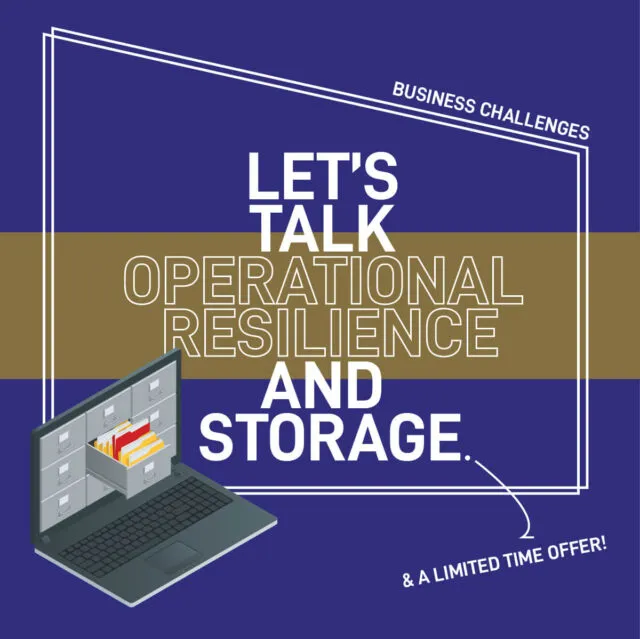The UK’s Technology Landscape Might Just Be the Best Home for AI Yet
Time to read: 15 mins
Ongoing (and often temperate) debates around artificial intelligence (AI) might make general consumers feel uneasy about the future, but rest assured these technologies are rapidly becoming one of the UK’s most substantial and interesting policy areas. AI policy, if we weigh the current attitudes, opportunities, and cautions, is leaning towards tightened regulation, guidance, and a better balance toward pro-innovation. The UK is emerging as a possible home for AI and its safe, purposeful enablement both commercially and socially.
The UK’s technology landscape has long been concentrated around London, which has garnered a global reputation as a key tech capital. The UK attracts not only new investment but has a wealth of leading universities and supporting research institutions, the skilled labour force, and an entrepreneurialism that’s kept the country technologically competitive on a global scale. Importantly the UK is prioritising AI policy and making it a global talking point. In fact, the UK will host the first ever global summit on AI safety, creating a new platform for AI risk and possible safety measures.
The UK is ideally positioned to lead conversations about the future of AI. Taking the role of global AI leadership, the UK is currently ranking third behind only the US and China. According to recent government statistics, the UK’s already profitable AI sector contributes £3.7 billion to the economy. At present, the UK employs 50,000+ professionals from across the country.
How is the UK Answering the AI Challenge?
Acting rapidly to AI safety and anxieties about its emerging risks, the UK has gone as far as to launch a “blueprint” for the “responsible development of AI”, which includes funding (£100 million) and a taskforce equipped to shape the future of this technology.
In May 2023, key AI firms, OpenAI and Anthropic, opened businesses in the UK, headquartering their efforts to support safe, secure AI technologies. Google’s DeepMind, located in London, has agreed with other firms to support the UK’s blueprint for a safer AI by sharing AI modelling. US giant, Palantir, recently announced that the UK would become its European HQ for AI development. The momentum behind a kind of start-up AI economy in the UK is rapid – with the UK shaping up into a technology superpower by having perhaps the most relevant conversations around safe, secure AI.
When Is a Machine Not a Machine?
The evolution of AI has transformed from science fiction into a decision engine to now genuine intelligence. The future of AI talks about indispensability as a technology that can adapt to resolve many pressing challenges, whether that’s in response to the climate emergency, clinical and research inefficiencies, drug discovery, or even to accelerate automotive design and manufacturing.
Current efforts to build an AI roadmap, or framework, see the country as an ideal testbed for technological development, regulation and as a platform for safe, ethical use of artificial intelligence. In 2023, the world stage is debating AI ethics, teasing out the possible risks. But for many, it’s still a question of when a machine becomes something else.

The UK Government, on the perceived importance of AI, observed in a whitepaper titled “A Pro-innovation Approach to AI and Innovation”, how:
“It (AI) could have as much impact as electricity or the internet, and has been identified as one of the 5 critical technologies in the UK Science and Technology Framework.”
Currently identified within the top key competing technologies of significance, the influence of AI will continue to shape business conversations in the coming years. The first major step, it would seem, is to understand AI policy, regulation, and ethics.
AI Regulations Are Coming
Rishi Sunak, the incumbent UK Prime Minister, envisions the UK as a leader for, and capital of, AI innovation, development, and regulation globally. For the PM, technology has become a recent priority in the UK, because technology investments can unlock efficiencies in other areas of British life, its industries, and the economy. It’s also about global competition and innovation.
Rishi Sunak outlined, to an enthused audience at London’s Tech Week, a view that the UK could be substantial in AI leadership, but the focus, for now at least, remains on “leading on AI safety”. Sunak’s support for AI policy touches into three areas:
- Cutting edge research and development
- Global cooperation around regulation
- Harnessing new value from AI in the UK
The months since outlining a vision for AI policy, Sunak has overhauled the government in order to carve out a platform for technology. The newly founded Department for Science, Innovation and Technology published plans to establish the UK as a technology superpower. Indeed, the UK’s Office for Artificial Intelligence acts a busy pressroom for all the latest ministerial changes in the road to new safety regulations. The exact dates, and policy details, remain undisclosed. It can be expected, in the near future, that the UK will unveil some kind of rulebook on AI safety and security.
What is AI Anxiety?
Are the concerns, dangers and risks surrounding artificial intelligence a temporary issue? Is the common anxiety of technology replacements more than an occupational hazard for select industries? Or can AI be transformative, whether professionally or commercially?
Reporting on artificial intelligence started nervously in 2022 with anxieties largely swirling around consumer sentiments that these technologies could be dangerous. The widespread ascent of popular chat tools like ChatGPT pushed AI away from being a faraway futuristic possibility into a modern novelty, and now these technologies have promising commercial and operational applications.
AI anxiety largely describes a consumer fear around emerging technologies. In fact, meditation app Calm not only polled adults about their AI anxieties, but released management tips to remediate deep feelings of unease around technologies.
“AI Anxiety [noun phrase]: Anxiousness caused by the ascent of artificial intelligence and the velocity of technological change.” – Calm
In May 2023, the widely considered godfather of AI, Geoffrey Hinton, sparked anxieties over his exit from Google concerning the future risks of AI. More specifically, and within research circles, an open letter even petitioned for the “pausing” of large-scale AI experimentation, that is until training and ethics have been more deeply understood and observed. The short moratorium would not seek to stymie AI development altogether, but rather to win back time and better reflect on how it can be regulated globally.

Artificial intelligence is not, however, always creating the same anxiety from deep within organisations. Instead, analysts have identified commercial value in AI technologies, but there has been some slowdown in understanding how it can be operationalised moving forward.
Like cloud technologies a decade ago, there is a gap between the perception of what AI could achieve in the near future and how it is currently being deployed. It is not uncommon for emergent technologies to be phased into business operations like this; it is almost never all at once, but rather gradually, as legacy systems start to fatigue and retire. It is even more common for analytical firms, like McKinsey, to notice how AI holds tremendous “economic potential”, especially when it relates back to business use.
Reports often share this kind of early marvel-gazing at what AI can become in time, observing the deep potential, or possibility, of these technologies with the right regulation, ethics, and vision in place. But that can be the problem with possibility: likelihoods and probabilities are as shaky as the hands rolling the dice.
Business Use Cases for AI
Coaching artificial intelligence into everyday operations remains a substantial barrier in the popular adoption of new technologies. Even though the market is increasingly conscious about the need to regulate AI technologies, there’s a powerful desire to learn how it can be deployed purposefully and profitably.
In theory, AI can be deployed to lighten organisational burdens for clinicians. Ambitious AI technologies can even accelerate risk modelling in the automotive industry. In most reported business use-cases, commercial deployment of AI needs to look-and-feel practical.
Engaged on this practical potential of artificial intelligence, for example, IBM POWER 8/ 9 estates that have not migrated into the latest AI-ready generation are missing out insights and automation features that are x5 faster with AI-inferencing per socket (versus Power E980). Faster, more streamlined IT automation and insights are almost synonymous with the current state of artificial intelligence as it relates to modern technology.
Why Headquarter a Business in the UK?
It is possible that the UK could become the new geographical home for AI policy. But the reasons to headquarter in the UK go beyond future possibilities and speak to the impressively deep and rich technology landscape.

According to the UK government:
- London is now the top “tech ecosystem outside of the US” (ahead of Paris, Tel Aviv and Beijing)
- London retains its position as tech capital ahead of any other European city
- Across the UK, there are 144 unicorns, 237 futurecorns, and over 85,000 start-ups and scale-ups
- The UK continues its leadership in regulation
Whether Birmingham, Edinburgh, or London, the UK is strengthening its position as a hub for meaningful AI policy by flexing an impressive technology landscape. Somewhere in Silicon Valley, artificial intelligence just generated a blog. Meanwhile, in the UK, it’s being tested to discover operational efficiencies, treatments, productivity gains, and so much more.
Talk to CSI
If you want to unlock value from UK innovation and technology, like IBM’s Power estate, get in touch to speak with one of our experts today for a no-obligation conversation.
About the author
Read More Articles

IBM Power
Levelling Up from Legacy IBM Power Systems (An EOS Guide)
Why Modernisation Matters Modernisation is often about market competitiveness and relevance. For modernised organisations, offboarding outdated hardware is a matter…

IBM Power
Why Private infrastructure is better for AI
Running AI Models vs. Building New AI Models: Inferencing and Training To make informed platform choices depends on a clear…

Storage and Backup
Improving Operational Resilience (With AI-driven Technology)
The Financial Impact of Cyber Attacks is Underestimated On average, analysts have discovered, a cyber-attack will force a UK SME…
Ready to talk?
Get in touch today to discuss your IT challenges and goals. No matter what’s happening in your IT environment right now, discover how our experts can help your business discover its competitive edge.

